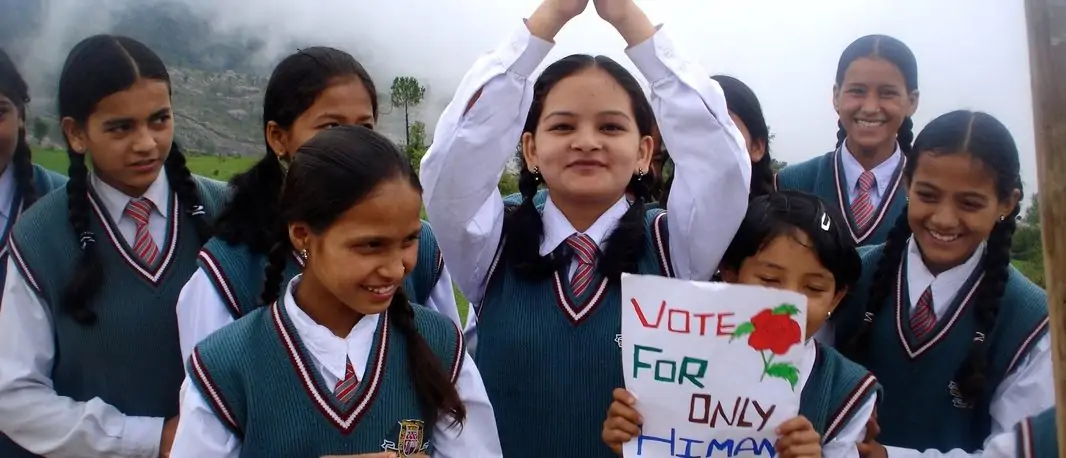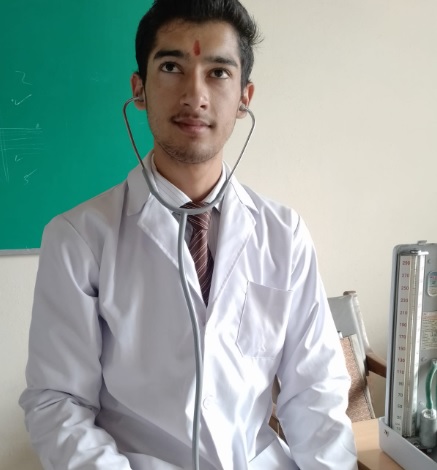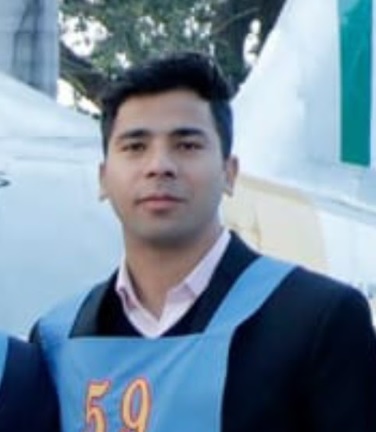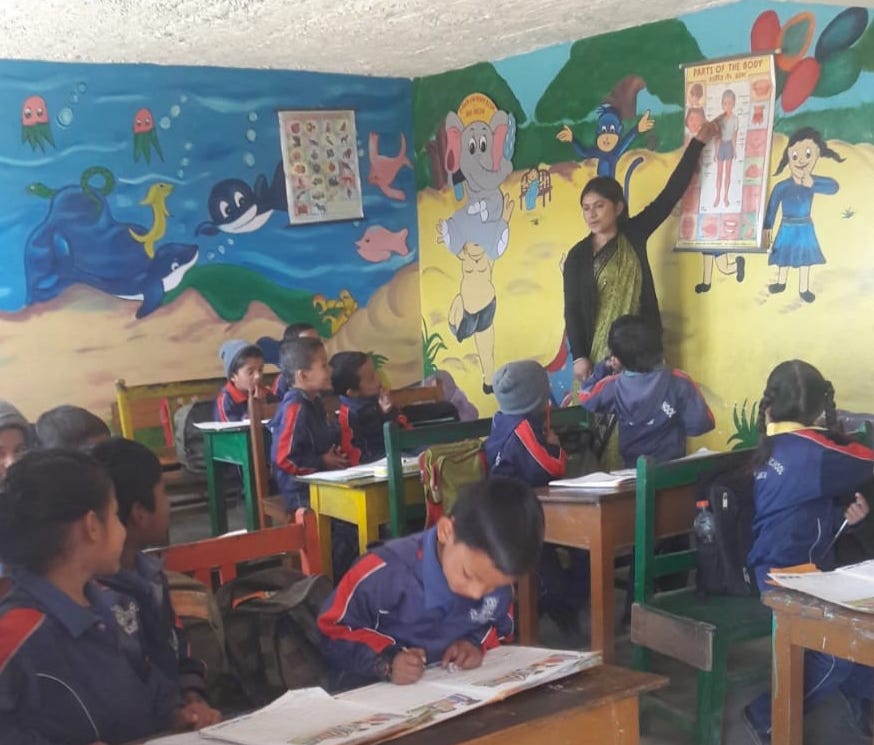
Deepak Karki : Writing and dreaming in Delhi
March 19, 2022
Sony Thakuni: Programming for a better future
May 2, 2022Himalayan Inter College : Striving for social wellbeing

“For a healthy and well functioning society, it’s essential that all members of a community think and work together towards achieving shared aspirations and common goals.”
Strengthening communities through education is one of the core aims of Himalayan Education Foundation (HEF). We not only invest in the education of the people of the mountain villages but we also support a community’s economic independence. Through our work we develop deep, long-term relationships with communities, learning from and partnering with local leaders and organisations.
Himalayan Inter College (HIC) is one such institution in Chaukori, with which HEF has been closely working for more than a decade. Heading the organisation is Mr. Prakash Karki, who is instrumental in its development. Let’s find out from him how HIC is striving to benefit the local community in addition to fulfilling the educational needs of its students.
Prakash, Welcome to Himalayan Vaani! Can you please briefly introduce HIC to us?
Thank you. Since British times, Chaukori has been a tea producing region and a peaceful tourist destination in the HImalayas. However, the local children had to travel far to attend a school. Realising the importance of a basic education for local kids, Himalayan Public School was founded in 1999 by my parents.They had lifelong experience as professional teachers. Since then, each year, the school has added more classes. Now students are able to complete all twelve classes and as such the school is called Himalayan Inter College.
In this interview, we would like to learn more about HIC and its community outreach. Please explain how it’s serving the needs of the local community.
At present our college educates about 900 local students who range from nursery to intermediate level. We are happy to let you know that we employ 50 teachers and 20 non teaching support staff thus providing employment opportunities in our local community.
We all know it’s difficult for certain sections of society to access quality education due to social and economic inequalities. How is HIC addressing these issues?
True, these are the challenges we face in building well functioning communities. We allocate seats to economically weaker and socially disadvantaged students as per the government‘s policy of affirmative action. A certain percentage of the seats are reserved for these students.
I am pleased to talk about our association with HEF in this regard. They have been supporting such students financially through their scholarship program since 2009. At present annually 150 students receive financial aid from HEF, of which 100 are girls. Traditionally girls were not treated on par with boys as far as their education is concerned. So encouraging girls to pursue education is essential for achieving gender equality in a modern society.
We know very well that organisations don’t exist in a vacuum. They are embedded in the larger social context and dependent on the surrounding environment. Your thoughts?
Yes. For a student to study well and flourish, there are many things that need to go well. The health of the community is vital in this aspect. We are very conscious of this connection. So community engagement is an important component of our organisation’s philosophy.
Our long term vision is to increase income opportunities within Chaukori, promoting the future livelihood of our students by creating a sustainable model community.
Other than providing education for students and employing locals in your organisation, how is HIC involved in the local community affairs?
We would like HIC to be a hub of community activity. We have resources: We have developed an infrastructure and our staff would like to help the local people in their daily lives. For instance, we would like to see the women in our community both economically empowered as well as given the resources to lead healthy lives.
We are happy to lend our facilities and support to Himalayan Naari, a local women’s self help group in the business of making and selling woollens and generating income for their families. Most of the women’s kids study in our school. So augmenting their income helps them a lot financially.
Interesting. You mentioned community health. Could you tell us more about it?
As you know Chaukori is in the hills far away from any major hospital facility with specialised diagnosis and treatment. People have to travel more than 200 km to reach a better equipped medical clinic. So the locals, especially women, suffer from diseases that could be treated if they had easy access to doctors and diagnostic facilities.
It’s in this context that Himalayan Naari in association with HIC has been conducting medical camps in Chaukori. A qualified doctor with a nursing team visits regularly to assess the health of the women and prescribe treatment.
Himalayan Naari is also keen to improve the health of women and children. So they have initiated a Nutrition project, whose aim is to provide the nutritional needs of pregnant women and supplement the diet of students who are suffering from ill health due to the lack of a nutritious diet. We are glad to be partners in this program.
As for improving women’s health, a seminar and workshop have been conducted for menstrual hygiene. Initiatives like these go a long way in maintaining the community’s well being in the long term. HIC encourages and helps in achieving this healthy goal.
You have talked about Himalayan Naari empowering local women. In the hills, in general, there are not many employment opportunities for local youth after completing their graduation. Is HIC concerned about it?
Yes. Traditionally the hill country has an agricultural economy. Farming activity can only support a limited number of people unless new and efficient methods of cultivation and a diversity in crops are introduced. For a few decades now, with increasingly better health and nutrition, the population of the hills has been growing steadily. But lack of employment in the hills causes the able youth to migrate to cities for better opportunities. The rest, “not so lucky” youth, remain in the villages and become depressed and take to alcohol, endangering the health of the community as a whole.
So, to address this situation, we would like our students to acquire vocational skills at a young age. Those who have the inclination to pursue a vocation can take up employment in these areas after completing school. At present we are promoting three trades: Carpentry, Welding and Organic farming. Towards this end, land has been acquired and we are in the process of constructing a workshop shed and procuring equipment. In the future we want to add more skills training programs such as beekeeping, horticulture, and electronics repair and maintenance.
The recent Covid-19 pandemic put brakes on this initiative. But we are keen to resume work as soon as possible. We also want to open this facility for the local people as well. If it’s successful, it will significantly benefit the community.
As a side note, I would also like to mention that our school served as a local quarantine center during the pandemic, thus lending a helping hand to the medical establishment.
Please tell us about your organic farming project.
You know that Chaukori first became famous as a tea producing hill station during the British era. But it has been in steady decline since they left. We want to revive tea cultivation in our area using organic methods and produce “artisanal tea” with the help of local people.
Our school has some land earmarked for tea cultivation. I am happy to tell you we harvested our first tea crop recently. We would like to market it and sell it locally first.
Before we conclude, can you say a few words on how you see HIC and its role in interacting with the community in the future.
We need to strengthen the bond between our institution and the larger community. They too are stakeholders in our mission. Not only do we benefit the society, we also have to be responsive to its needs and evolve our initiatives to address them. That outlook will help the community to flourish and individual members to prosper.
We at HIC are inspired and motivated by this vision and contribute our bit to the society by working with like-minded organisations like Himalayan Education Foundation and Himalayan Naari.
Thank you, Prakash. There is much more to learn about HIC and its efforts in protecting the natural environment for a greener future. That’s a topic for another conversation. Good luck to HIC and you in your efforts to deepen community engagement.



